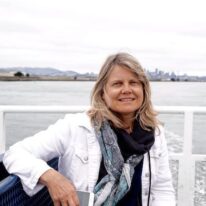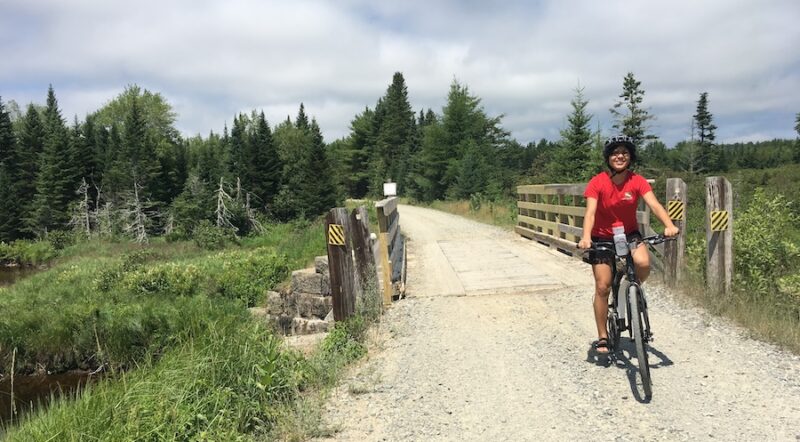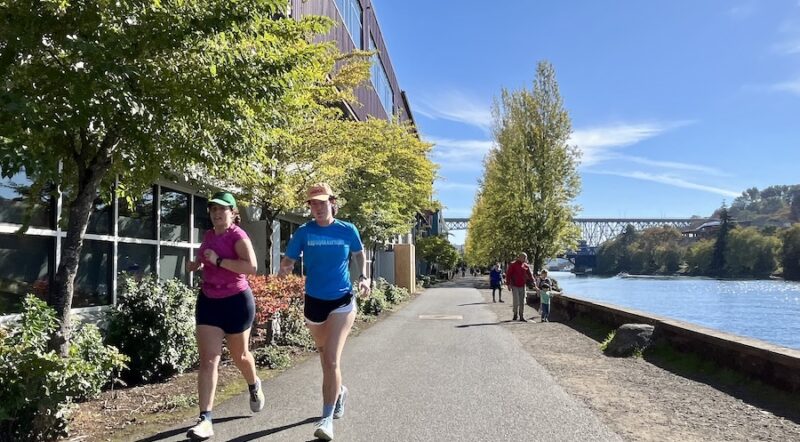Utah’s Jordan River Parkway Trail
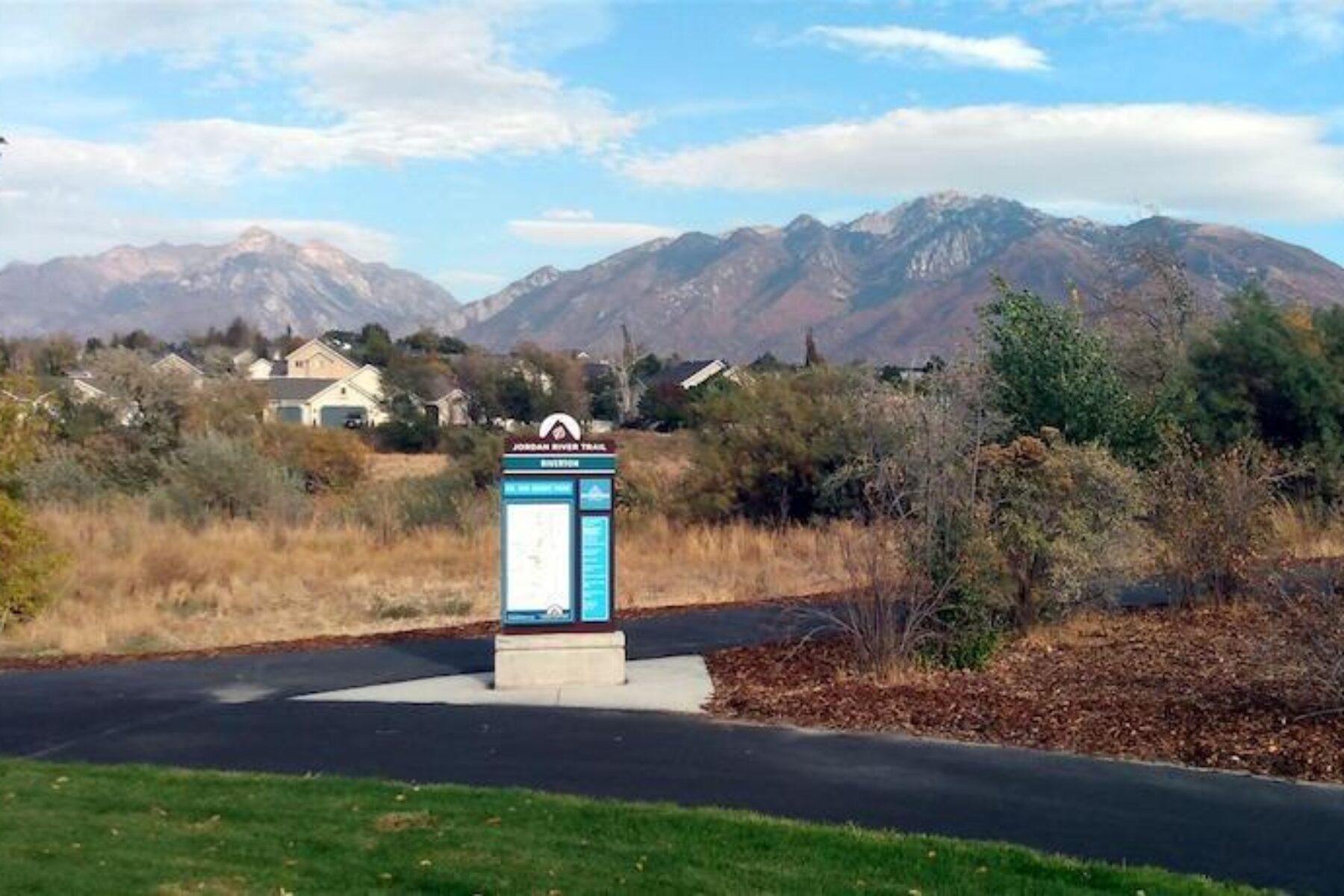
Trail of the Month: Dec. 2021
“The real magic of this has been the partnerships. The Salt Lake Valley is made up of a lot of smaller jurisdictions … They all rallied around this project.”
—Soren Simonsen, executive director, Jordan River Commission
With the majestic Wasatch Mountains looming in the distance and bucolic wetlands attracting a range of birds and wildlife along the way, the Jordan River Parkway Trail can feel eons away from it all.
The reality, though, is that the trail cuts a nearly 50-mile path through Utah’s most densely populated region. Traversing portions of Salt Lake City—the state’s largest city—and passing through a host of smaller towns and suburbs, the Jordan River Parkway Trail is said to be easily accessible for nearly half of Utah’s population.
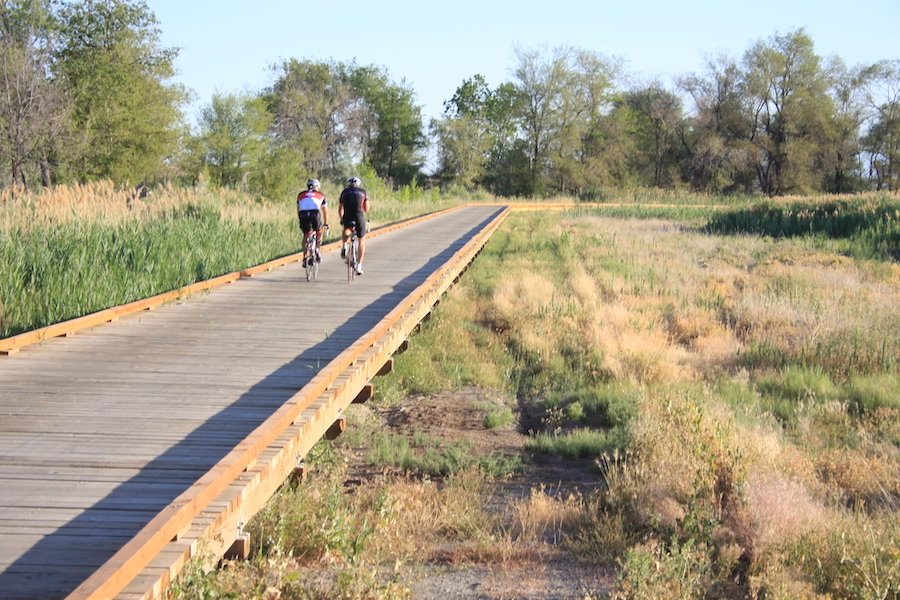
So, it comes as little surprise that walkers, bicyclists and inline skaters gravitate to the paved trail that runs north–south through the Salt Lake Valley. Especially during the COVID-19 pandemic, the parkway has been a lifeline.
Soren Simonsen, executive director of the Jordan River Commission, notes that the trail represents “a real opportunity to connect neighborhoods with nature.” And the neighborhoods have taken note. “When the pandemic hit, the use of the trail kind of exploded,” Simonsen said. “There were sections that saw a 400% increase from 2019 to 2020.”
Retiree Lynn Larsen, who worked for 25 years as a landscape architect and project manager with the Salt Lake County Parks and Recreation Department, is a longtime trail user himself and has noticed a similar phenomenon. “In the last couple of years, with COVID, a lot of people found the trail to be a respite. Usage has jumped dramatically,” said Larsen.
While the usage seems to have peaked in 2020, Simonsen said, “We’ve seen a little bit of a drop-off but not a lot.”
RELATED: Top 10 Trails in Utah
Early Trail Vision
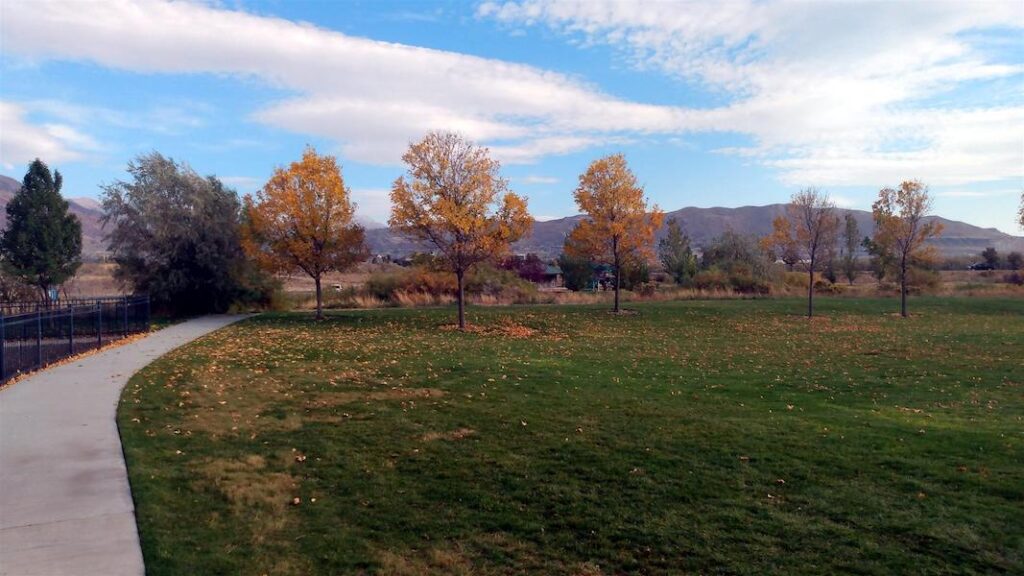
Considering that the Jordan River Parkway Trail was routed through Utah’s most developed area, building the trail was never going to be easy. And indeed, the decades-long project faced its share of complications with land acquisitions, river crossings and railroad track crossings.
Larsen, who spent much of his career with the Salt Lake County Parks and Recreation Department working on the parkway, remembers the early vision of the massive project in the mid-1990s.
“When I first came to work with the county, the director of parks and recreation took me out to a natural area,” Larsen recalled. “There was nothing out there. I never imagined just what it would take to build the trail.”
What it ended up taking was almost three decades of work, countless partnerships and a lot of perseverance. The work paid off: In 2017, the Jordan River Parkway Trail was completed when a bridge over a series of railroad tracks in Salt Lake City provided the final link.
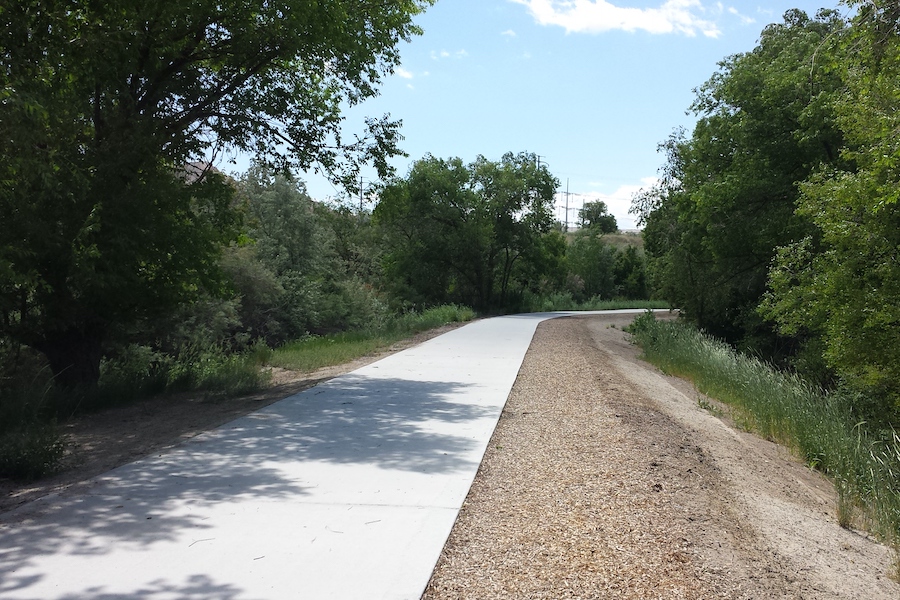
Today, the parkway serves as the backbone of a network that takes in such varied communities as the densely populated Salt Lake City and West Jordan, small towns like Bluffdale and growing suburban cities like Sandy and Draper.
“It took a long time because of land acquisitions,” Larson said. “In the beginning, there was a lot of push-back among the neighbors along the river. They were worried the trail could possibly bring crime into the residential areas. That was one of the things we had to overcome.”
The resistance waned when residents realized that they loved getting out on the trails near their homes, Larsen said, and when their land values went up because of the trail proximity.
Through it all, a vision prevailed of a paved trail that would connect the towns, big and small, that make up the more than 1.25-million-population Salt Lake metro area.
Partnerships Were Key
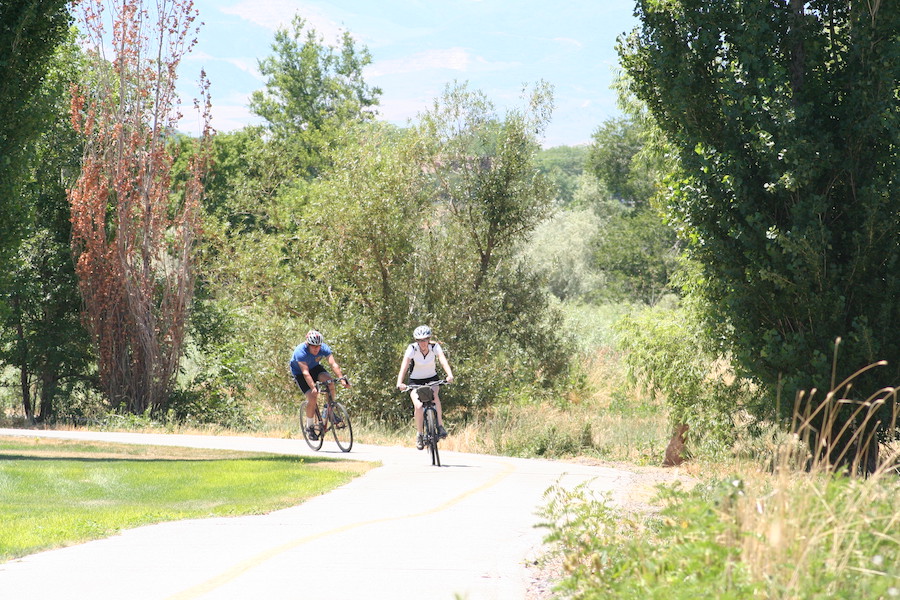
Simonsen has been involved with the Jordan River Parkway Trail, either directly or through other related trail projects, for nearly 25 years. During that time, he became impressed with the level of cooperation between the various cities and counties that touch the trail.
“There are 16 cities and three counties [along the course of the trail],” Simonsen said. “And it goes through the most urbanized part of the state.”
The communities ultimately came together. The real magic of this has been the partnerships,” said Simonsen. “The Salt Lake Valley is made up of a lot of smaller jurisdictions. It is really indicative of these partnerships that they have been able to see the value in doing something together that you can’t do on your own. They all rallied around this project.”
The cooperation came despite a range of political leanings among the various jurisdictions, Simonson explained. “They span the political spectrum, but they were able to say, ‘let’s do something amazing together.’”
The trail has also had substantial assistance from the state. Simonsen noted that Utah state legislators have consistently pushed for funding for various portions of the project. Recently, the state awarded $7.6 million in Utah Outdoor Recreation Grant money to 99 outdoor recreation infrastructure projects across Utah, including trails.
Angelo Calacino, park development project manager for Salt Lake County’s Planning and Development Section, has worked on the project for about 16 years and says the partnership process was gradual and sometimes arduous. “It took a while,” he said. “At first, a lot of the jurisdictions had a go-it-alone attitude.”
Even approval of cohesive signage for the trail took some time, Calacino said. But after getting buy-in along the way, the trail now has a uniform sign system, with mile markers charting the course.
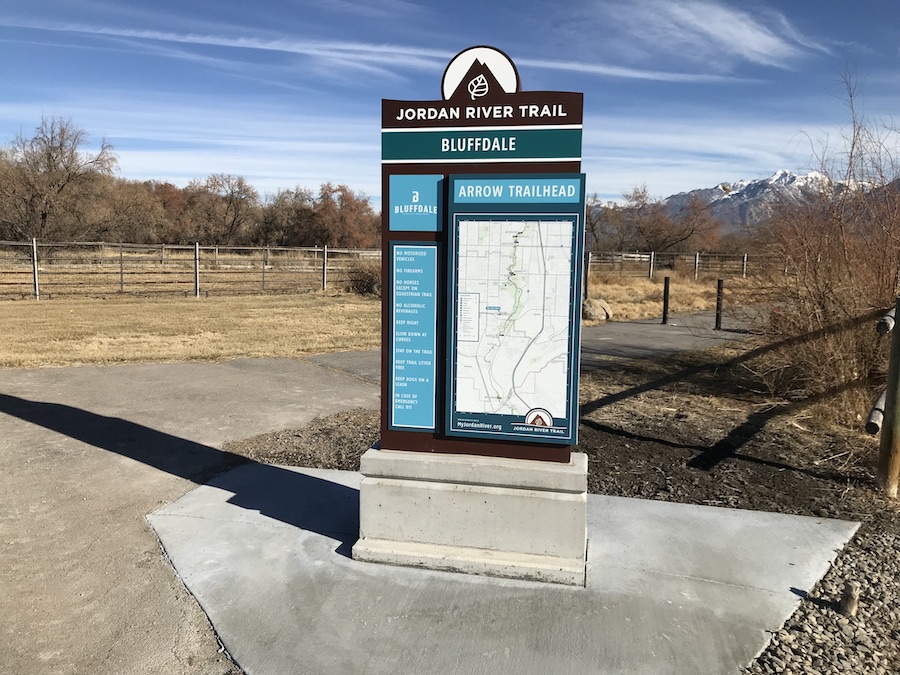
Access to Neighborhoods and Diverse Terrain
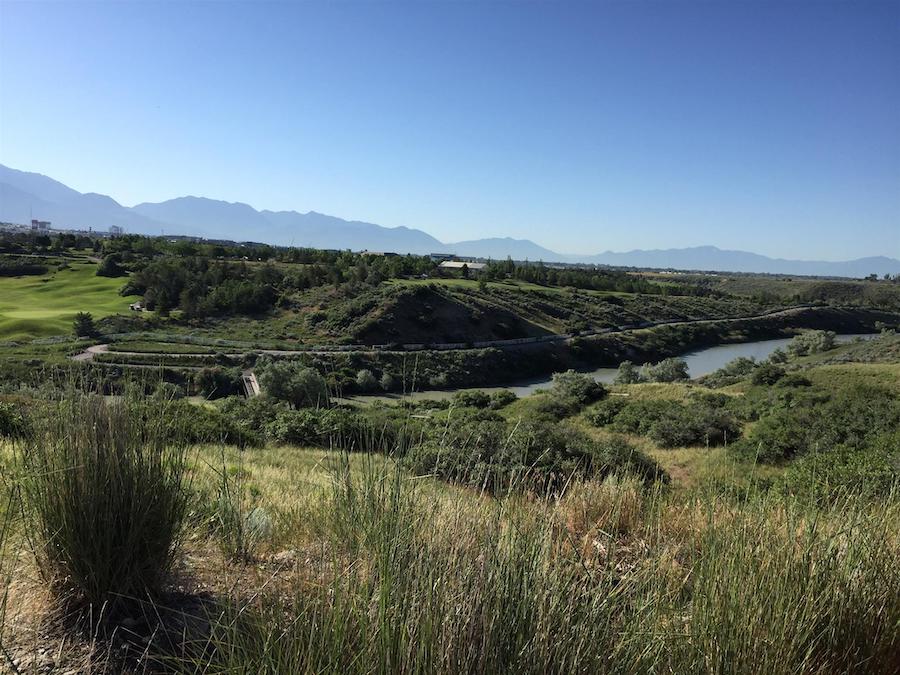
Another of the major beauties of the Jordan River Parkway Trail is the variety of terrain and demographics along the route. From densely populated parts of Salt Lake City in the north to natural areas and grassy parks in the suburbs, to marshy areas teaming with birds and wildlife farther south, the trail seems to have something for everyone.
“The terrain really varies,” Calacino said. “There are a lot of wetlands. A couple areas are industrial, and there are some pristine areas down in the south. You can get a sense of the Wasatch Mountain range looming. It has nice variation.”
Kade Christensen, the parks and trails division manager for Utah County, says some of the best parts of the trail are those that run right along the Jordan River. “It’s pretty cool,” he said. “It goes through lots of different terrain. It goes by golf courses, and you see deer, coyotes, pheasants.”
Because of its proximity to major employment areas, as well as countless residential areas, Christensen said, “It can be used for commuting or for play.”
Along with the river setting, Simonsen pointed out that the Jordan River Parkway Trail connects two of Utah’s largest bodies of water, Utah Lake and the Great Salt Lake, and also connects with many other trails in the area.
In fact, the 48.9-mile Jordan River Parkway Trail makes up a significant portion of Utah’s extensive Golden Spoke Trail Network, the system that connects the Ogden, Salt Lake City and Provo areas with more than 100 miles of paved trails.
Building on Success
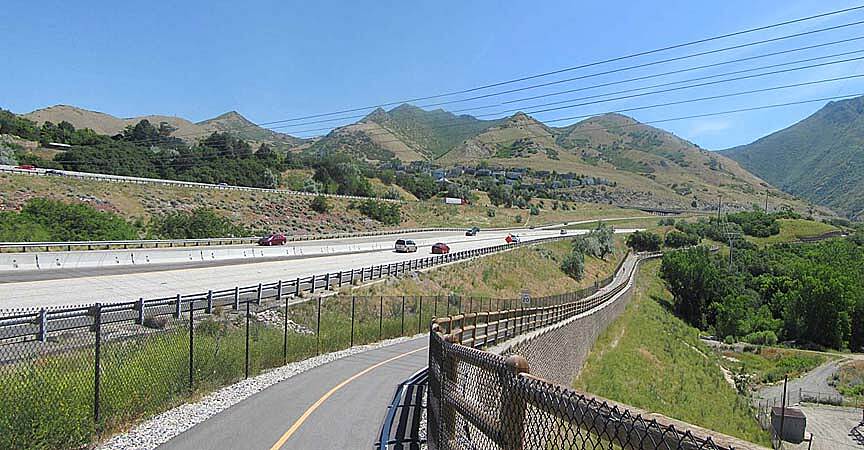
More connections are yet to come. Simonsen said a connection with Parley’s Trail, a rail-trail section in Salt Lake County, is expected to be complete by the summer or early fall of 2022. When finished, the trail will span Salt Lake City from east to west, removing obstacles for cyclists and walkers. “This is really a great connection and an important connection,” Simonsen said. “It becomes a new commuting option.”
And Larsen noted that although the Jordan River Parkway Trail is considered complete, there are advocates for expanding the trail to both sides of the river. Currently, the trail passes back and forth over the river depending on the land and right-of-way that was available.
But for now, Larsen said the parkway stands as a major accomplishment. “The completion was really exciting for a lot of people,” he said. “It was a real group effort. People will be able to use the trail for a long, long time.”
He credits not just the government partnerships, but the residents who have approved bond issues to help fund recreation. “It helped that we had the citizens who were willing to vote for the bonds,” Larsen said. “It has really added to the Valley—not just trails but swimming pools and parks, too.”
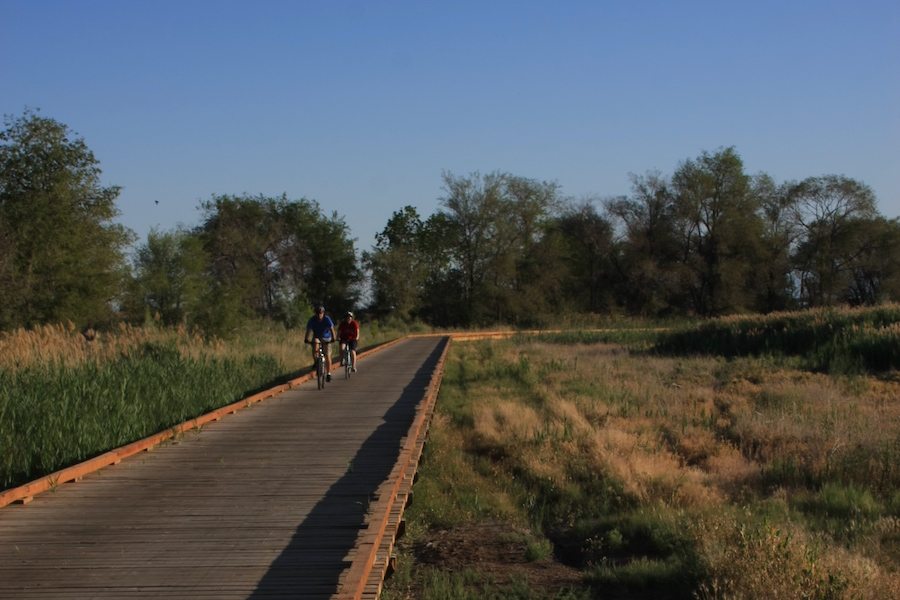
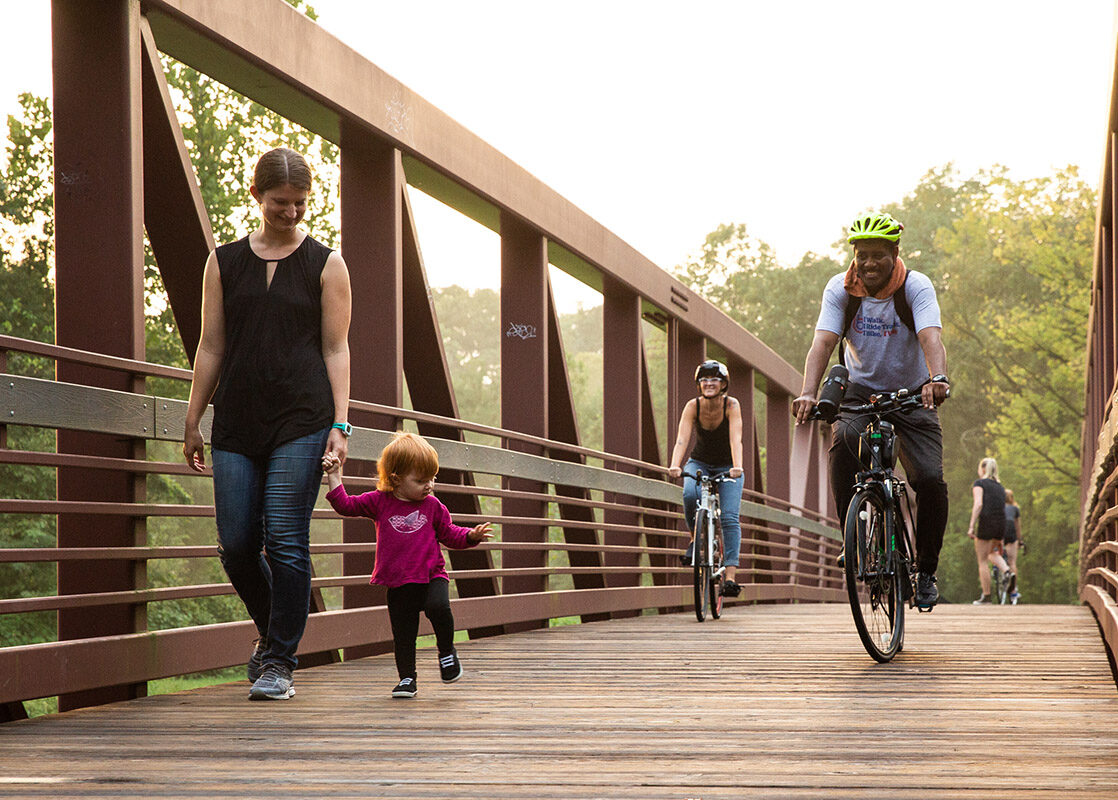
Donate
Everyone deserves access to safe ways to walk, bike, and be active outdoors.
